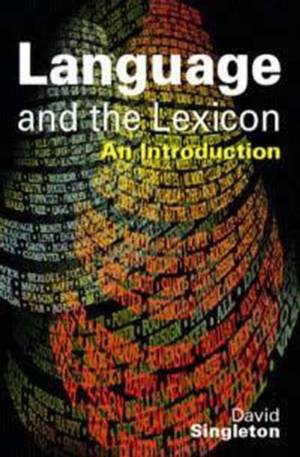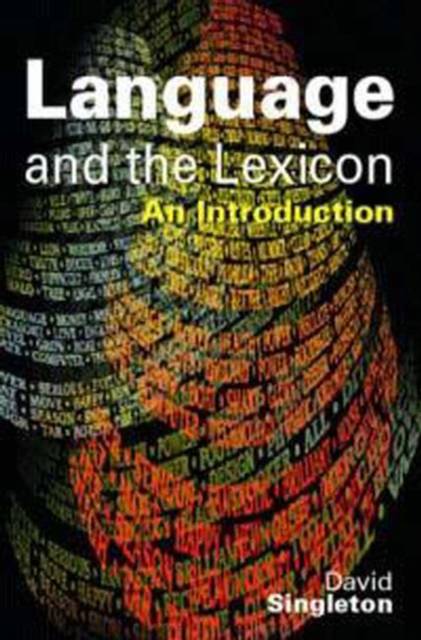
Je cadeautjes zeker op tijd in huis hebben voor de feestdagen? Kom langs in onze winkels en vind het perfecte geschenk!
- Afhalen na 1 uur in een winkel met voorraad
- Gratis thuislevering in België vanaf € 30
- Ruim aanbod met 7 miljoen producten
Je cadeautjes zeker op tijd in huis hebben voor de feestdagen? Kom langs in onze winkels en vind het perfecte geschenk!
- Afhalen na 1 uur in een winkel met voorraad
- Gratis thuislevering in België vanaf € 30
- Ruim aanbod met 7 miljoen producten
Zoeken
Omschrijving
The lexicon represents the building blocks of language: words and vocabulary. Most of us think of language in terms of words, and words are also integral to the way in which linguists approach language as an object of study. The lexicon and lexical issues must be taken in consideration in every domain of language study and, conversely, the lexicon cannot be viewed in isolation from other aspects of language.
'Language and the Lexicon' provides a comprehensive yet accessible overview of lexicology, introducing the reader to the lexicon by exploring the lexical aspects of a range of different areas of language: syntax, morphology, semantics, phonology, language variation, language change, language acquisition and language processing. Assuming no prior knowledge of linguistics, the book introduces the key concepts employing examples from a wide variety of languages in order to illustrate the points made.
This book is ideally suited to those approaching lexicology for the first time. With its wide breadth of focus and diverse topics, it can equally serve as a first introduction to linguistics.
'Language and the Lexicon' provides a comprehensive yet accessible overview of lexicology, introducing the reader to the lexicon by exploring the lexical aspects of a range of different areas of language: syntax, morphology, semantics, phonology, language variation, language change, language acquisition and language processing. Assuming no prior knowledge of linguistics, the book introduces the key concepts employing examples from a wide variety of languages in order to illustrate the points made.
This book is ideally suited to those approaching lexicology for the first time. With its wide breadth of focus and diverse topics, it can equally serve as a first introduction to linguistics.
Specificaties
Betrokkenen
- Auteur(s):
- Uitgeverij:
Inhoud
- Aantal bladzijden:
- 259
- Taal:
- Engels
Eigenschappen
- Productcode (EAN):
- 9780340731741
- Verschijningsdatum:
- 29/09/2000
- Uitvoering:
- Paperback
- Formaat:
- Trade paperback (VS)
- Afmetingen:
- 157 mm x 233 mm
- Gewicht:
- 394 g

Alleen bij Standaard Boekhandel
+ 161 punten op je klantenkaart van Standaard Boekhandel
Beoordelingen
We publiceren alleen reviews die voldoen aan de voorwaarden voor reviews. Bekijk onze voorwaarden voor reviews.









